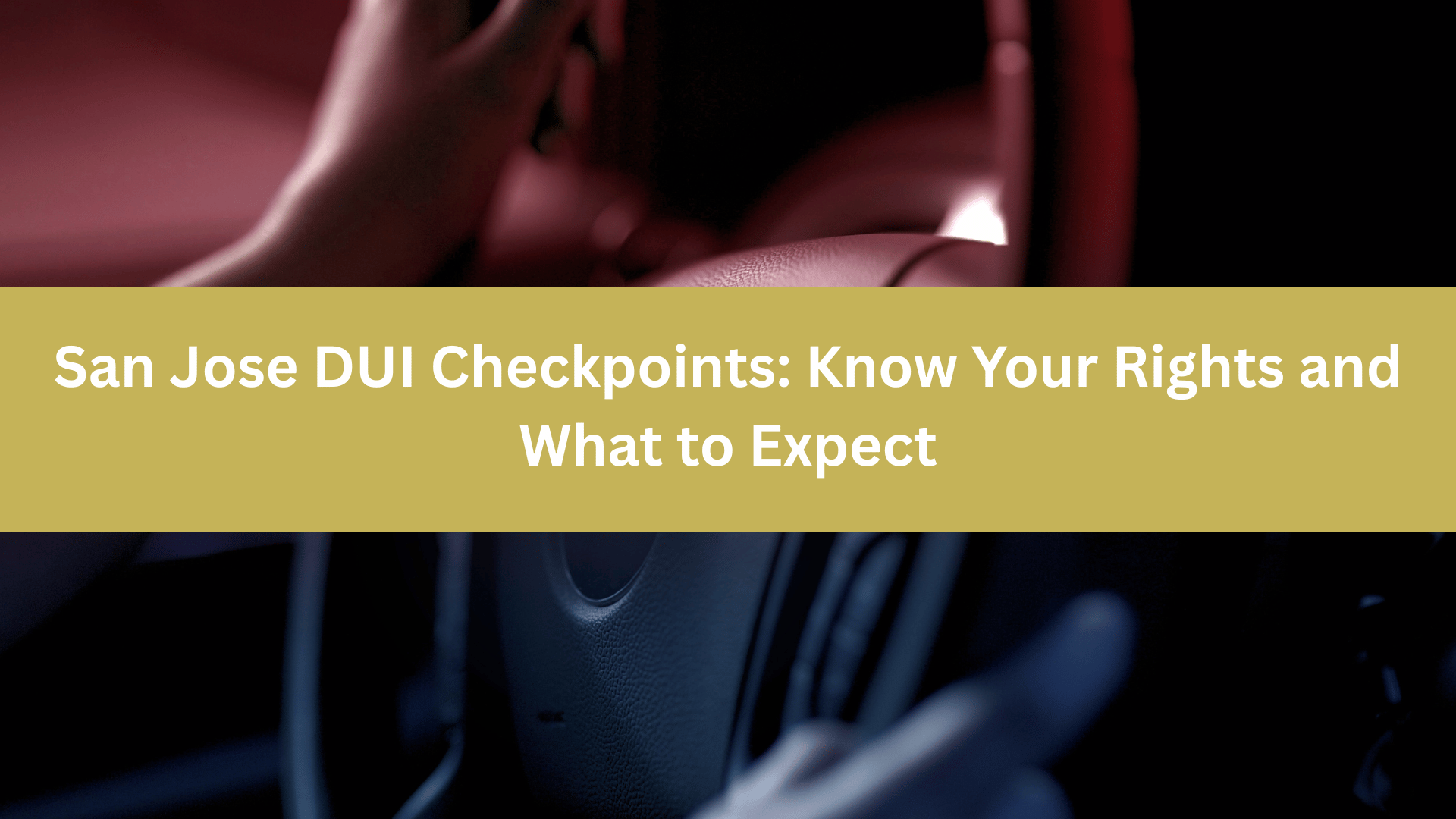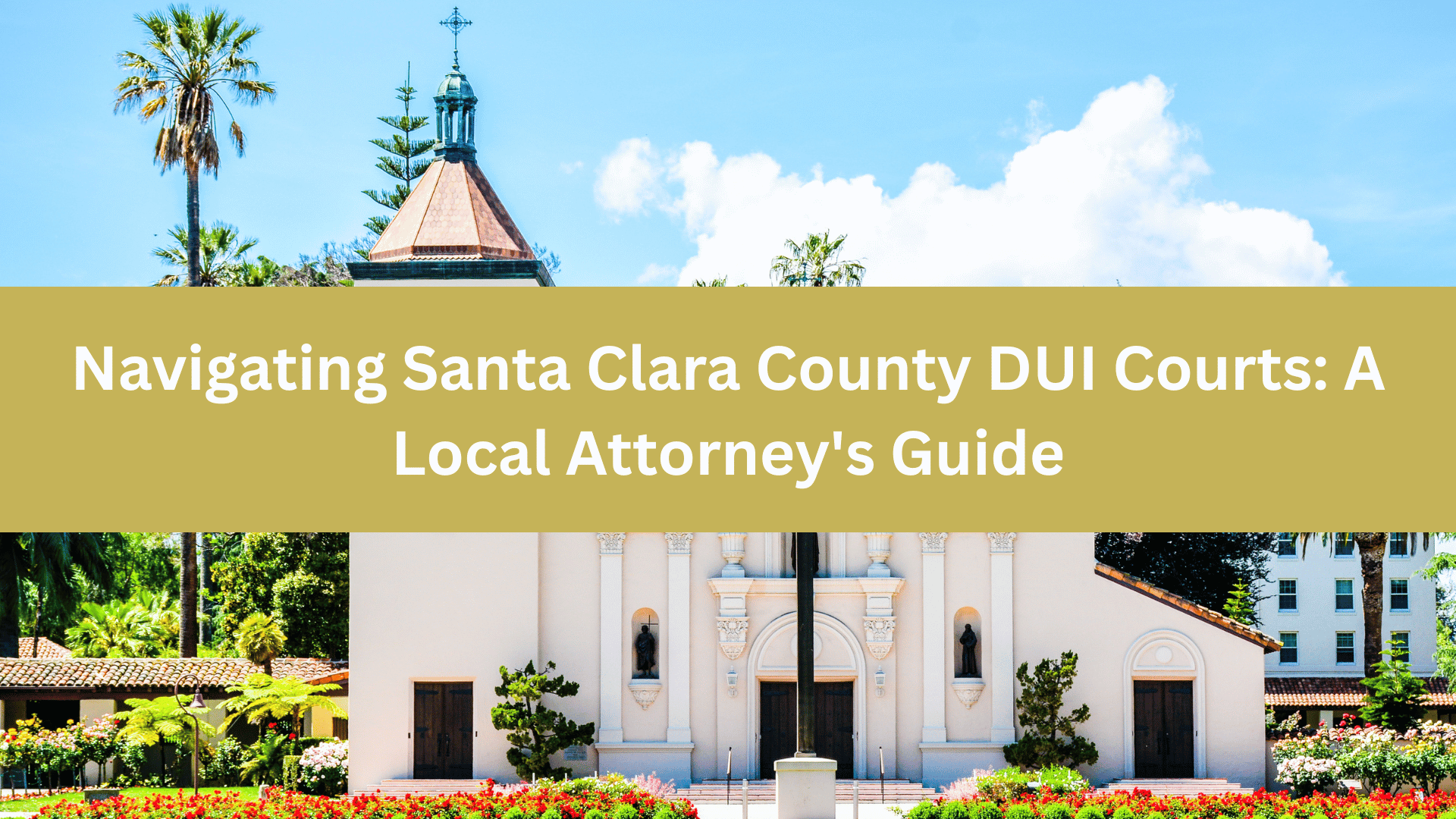San Jose DUI Checkpoints: Know Your Rights and What to Expect
Complete guide to DUI checkpoints in San Jose and Santa Clara County. Learn about your rights, common checkpoint locations, and how to navigate these encounters legally.

San Jose DUI Checkpoints: Know Your Rights and What to Expect
DUI checkpoints are a regular occurrence in San Jose and throughout Santa Clara County. Understanding your rights and knowing what to expect can help you navigate these encounters legally and protect yourself from potential violations of your constitutional rights.
Understanding DUI Checkpoints in California
Legal Authority for Checkpoints
DUI checkpoints are legal in California under specific conditions established by the California Supreme Court in Ingersoll v. Palmer (1987). However, they must meet strict constitutional requirements to be valid.
Constitutional Requirements:
- Advance publicity of the checkpoint
- Neutral selection criteria for stopping vehicles
- Proper supervision by law enforcement supervisors
- Reasonable location and timing
- Minimal intrusion on drivers
How Checkpoints Differ from Traffic Stops
Regular Traffic Stop:
- Requires reasonable suspicion of a violation
- Officer must articulate specific observations
- Can be challenged if lacking proper justification
DUI Checkpoint:
- No individual suspicion required
- Stops based on predetermined pattern (every 3rd car, etc.)
- Must follow established procedures to be legal
Common San Jose DUI Checkpoint Locations
High-Traffic Areas
Based on public announcements and historical patterns, checkpoints commonly occur at:
Major Thoroughfares:
- Highway 101 (various locations through San Jose)
- Interstate 280 (especially near downtown exits)
- Highway 87 (Guadalupe Parkway corridor)
- Interstate 680 (north San Jose area)
City Streets:
- Almaden Expressway (south San Jose)
- Capitol Expressway (east San Jose)
- Stevens Creek Boulevard (west San Jose)
- Story Road (east San Jose)
Timing Patterns
Typical Checkpoint Hours:
- Friday and Saturday nights: 9 PM - 3 AM
- Holiday weekends: Extended hours
- Special events: Before/after major events
- Summer months: Increased frequency
Law enforcement must announce checkpoints in advance through media outlets. Check local news and SJPD social media for announcements.
Your Rights at DUI Checkpoints
What You Must Do
Required Actions:
- Stop when directed by law enforcement
- Provide driver's license when requested
- Provide vehicle registration and insurance
- Follow lawful orders from officers
What You Are NOT Required to Do
Voluntary Actions:
- Answer questions about drinking or activities
- Perform field sobriety tests
- Take preliminary alcohol screening (PAS) test (if over 21 and not on probation)
- Consent to vehicle searches
How to Exercise Your Rights
Recommended Approach:
- Be polite and respectful
- Provide required documents
- State clearly: "I choose to exercise my right to remain silent"
- If asked about drinking: "I prefer not to answer questions"
- If asked to perform tests: "I respectfully decline"
San Jose Police Department Checkpoint Procedures
SJPD Standard Operating Procedures
Initial Contact:
- Officer approaches vehicle
- Requests license, registration, insurance
- Observes driver for signs of impairment
- Brief questioning about alcohol consumption
Secondary Screening:
- Vehicles showing signs of impairment directed to secondary area
- More detailed investigation
- Field sobriety tests offered
- Chemical testing if arrested
What Officers Look For
Physical Signs:
- Odor of alcohol
- Bloodshot or watery eyes
- Slurred speech
- Fumbling with documents
Behavioral Indicators:
- Confusion or disorientation
- Inappropriate responses
- Nervous behavior
- Admission of drinking
California Highway Patrol (CHP) Checkpoints
CHP Jurisdiction in San Jose
CHP conducts checkpoints on:
- State highways (101, 280, 680, 87)
- Interstate highways (880, 680)
- State routes (85, 237, 17)
CHP Procedures
Standardized Approach:
- More formal procedures than local police
- Strict adherence to constitutional requirements
- Detailed documentation of stops
- Supervisor oversight required
Legal Challenges to Checkpoint Stops
Common Constitutional Violations
Improper Advance Notice:
- Insufficient publicity
- Last-minute location changes
- Inadequate media notification
Discriminatory Selection:
- Targeting specific vehicles
- Racial or ethnic profiling
- Deviation from neutral criteria
Excessive Intrusion:
- Prolonged detention without cause
- Searches without consent or probable cause
- Coercive questioning techniques
How We Challenge Illegal Checkpoints
Investigation Process:
- Review checkpoint setup procedures
- Examine advance publicity requirements
- Analyze selection criteria compliance
- Interview witnesses to procedures
Legal Motions:
- Motion to suppress evidence
- Constitutional violation claims
- Procedural error arguments
- Due process challenges
If evidence was obtained through an illegal checkpoint stop, it may be suppressed, potentially leading to case dismissal or reduced charges.
Avoiding DUI Checkpoints Legally
Your Right to Avoid Checkpoints
Legal Avoidance:
- You can legally turn around before entering a checkpoint
- Must not violate traffic laws while avoiding
- Cannot be stopped solely for avoiding checkpoint
- Must have legal place to turn around
Important Considerations:
- Officers often position themselves to observe avoidance
- Any traffic violation during avoidance can justify a stop
- Suspicious behavior may create reasonable suspicion
Safe Avoidance Strategies
Before Encountering Checkpoint:
- Use navigation apps that show checkpoint locations
- Plan alternate routes in advance
- Ensure any turns are legal and safe
- Don't panic or make sudden movements
What Happens If You're Arrested at a Checkpoint
Arrest Procedures
Standard Process:
- Field sobriety tests (if you consent)
- Preliminary alcohol screening (if applicable)
- Arrest if probable cause exists
- Chemical testing at station or hospital
- Booking and citation process
Immediate Steps to Take
During Arrest:
- Remain calm and cooperative
- Don't resist or argue
- Ask for an attorney
- Don't answer questions without counsel
After Release:
- Contact experienced DUI attorney immediately
- Request DMV hearing within 10 days
- Document everything you remember
- Preserve any evidence (receipts, witness information)
Special Considerations for Different Drivers
Commercial Drivers
Enhanced Requirements:
- Lower BAC threshold (0.04%)
- CDL implications for any DUI
- Employer notification requirements
- Career impact considerations
Underage Drivers (Under 21)
Zero Tolerance Law:
- Any detectable alcohol (0.01% BAC)
- Immediate license suspension
- Additional penalties for underage drinking
- Parent/guardian notification
Probation Violations
Enhanced Consequences:
- Violation of DUI probation terms
- Additional court appearances required
- Possible jail time
- Extended probation periods
Technology and DUI Checkpoints
Modern Checkpoint Technology
Equipment Used:
- Portable breath testing devices
- Digital cameras and recording equipment
- License plate readers
- Mobile booking systems
Privacy Considerations:
- Video recording of interactions
- Data collection and storage
- License plate tracking
- Information sharing between agencies
Preparing for Checkpoint Encounters
Before Going Out
Planning Ahead:
- Designate a sober driver
- Use rideshare services
- Plan overnight accommodations
- Check for announced checkpoints
If You Must Drive:
- Ensure all documents are current and accessible
- Know your rights and how to exercise them
- Have attorney contact information available
- Understand the consequences of various choices
During the Encounter
Best Practices:
- Keep hands visible on steering wheel
- Turn on interior lights if dark
- Be polite but exercise your rights
- Don't volunteer information
- Remember details for potential legal challenge
Recent Changes in Checkpoint Law
Evolving Legal Standards
Recent Developments:
- Enhanced technology use requirements
- Updated privacy protections
- Modified advance notice requirements
- Changes in selection criteria standards
Impact on Defense Strategies
New Opportunities:
- Technology-based challenges
- Enhanced privacy arguments
- Procedural compliance issues
- Constitutional protection evolution
Working with Experienced DUI Defense
Why Local Experience Matters
San Jose Specific Knowledge:
- Familiarity with SJPD procedures
- Knowledge of common checkpoint locations
- Understanding of local court practices
- Relationships with local prosecutors
Our Former Prosecutor Advantage
Unique Insights:
- Understanding of checkpoint setup requirements
- Knowledge of common procedural errors
- Experience with constitutional challenges
- Effective negotiation strategies
Conclusion
DUI checkpoints are a reality in San Jose and Santa Clara County, but knowing your rights can help you navigate these encounters successfully. While checkpoints are legal when properly conducted, they must meet strict constitutional requirements, and violations of these requirements can lead to suppression of evidence.
Remember that you have important rights during checkpoint encounters, including the right to remain silent and refuse voluntary tests. Exercising these rights politely and respectfully can protect you from self-incrimination while still complying with legal requirements.
If you're arrested at a DUI checkpoint, immediate action is crucial. Contact an experienced DUI attorney who understands both the constitutional requirements for checkpoints and the local procedures used by San Jose area law enforcement. With proper representation, checkpoint arrests can often be successfully challenged, leading to reduced charges or case dismissal.
Don't let a checkpoint encounter derail your future. Know your rights, exercise them appropriately, and seek experienced legal help if needed. Your freedom and future may depend on the decisions you make during these critical moments.
Need Legal Help with Your San Jose DUI Case?
Our experienced San Jose DUI attorneys are here to help. Contact us for a free consultation.
